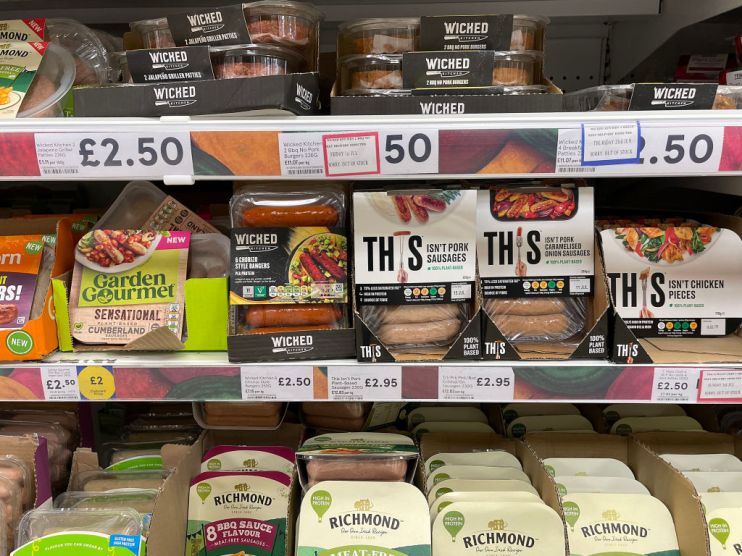Supermarket shoppers face £454 extra to yearly grocery bill as inflation bites

Shoppers are now facing a £454 increase to their annual supermarket bills, with grocery price inflation edging towards the highest level since 2008.
According to the latest numbers from Kantar, grocery price inflation now sits at 9.9 per cent for the past four weeks. This marks the second highest level of inflation seen since 2008, with all records expected to be broken in the coming weeks.
It comes as the Office for National Statistics (ONS) will reveal the closely-watched rate of consumer price inflation (CPI) for June on Wednesday. Last month, it was 9.1 per cent.
Supermarket sales rose by 0.1 per cent in the 12 weeks to 10 July, marking the first time the industry has seen growth in just over a year.
Food manufacturers and retailers have been hammered by supply chain disruption and soaring ingredient costs, as well as energy cost increases.
Consumers have made changes to their weekly shop with supermarket own brand lines swelling 4.1 per cent and sales of branded items dropping 2.4 per cent.
“It’s a complex picture and the grocers are busy negotiating with their suppliers to mitigate impact at the tills as far as possible,” Fraser McKevitt, head of retail and consumer insight at Kantar, said.
Tesco has made headlines in recent weeks after the country’s largest supermarket had disputes with US giants Mars and Heinz over price increases, with shelves temporarily bare of certain pet food and ketchup items.
Brits flocked to discounters to find cheaper grocery baskets. Lidl continued to devour market share, with sales boosted 13.9 per cent, while rival Aldi boosted sales by 11.3 per cent versus the previous year.
Lidl now grasps a seven per cent market share while Aldi has scored a 9.1 per cent share.
However, the large supermarkets have also been vying to retain consumers with loyalty schemes and promotions appealing to cash-strapped customers.
Tesco retained a market share of 27.1 per cent, followed by Sainsbury’s holding 14.9 per cent and Asda holding 13.7 per cent.
“We’re already seeing grocers taking steps to overcome inflation challenges as many – like Asda and Morrisons – have cut prices on hundreds of items,” Wayne Snyder, Blue Yonder’s vice president of retail strategy, said.
He added: “Others – like Sainsburys and Waitrose – are personalising discounts, while Tesco continues to provide discounts for their club members.”